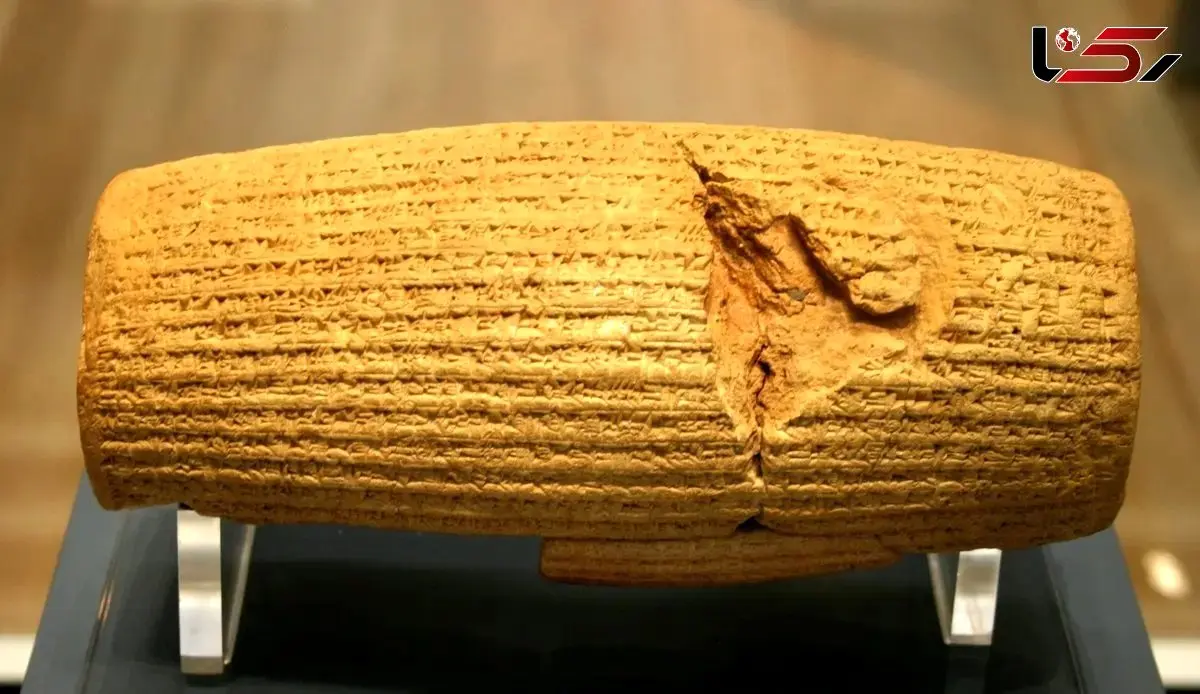Ali Ahmadnia, Director of Government Information Affairs, Provides Details
UNESCO Adopts Cyrus Charter of Human Rights Through Iran-Led Initiative
Rokna Social Desk: Ali Ahmadnia, Director of Government Information Affairs, elaborated on the process of the adoption of the Cyrus Charter at UNESCO, stating: “More than ten months ago, in coordination with Iran’s Permanent Delegation to UNESCO, the Ministry of Foreign Affairs, and the Ministry of Cultural Heritage, and with the full support of the Minister of Science, the proposal for the joint international registration of the Cyrus Charter of Human Rights was raised during the negotiations between the Presidents of Iran and Tajikistan. Following diplomatic follow-ups and the drafting of a joint resolution, Iraq also joined the request, and at the 43rd General Conference of UNESCO in Samarkand, this historic charter was approved with the support of the member states.”

According to Rokna’s social affairs correspondent, in a historic event on November 6, 2025 (15 Aban 1404), at the 43rd General Conference of UNESCO in Samarkand, the “Cyrus Charter” — recognized as one of the earliest declarations of human rights in the world emphasizing respect for cultural diversity — was formally acknowledged.
This measure, supported and endorsed by UNESCO member states, once again highlighted Iran’s transnational role in safeguarding human heritage and universal values.
Ali Ahmadnia, Director of Government Information Affairs, explained to Rokna’s social correspondent the process through which this valuable human rights charter was adopted:
“More than ten months ago, through consultations with Iran’s Permanent Delegation to UNESCO and in coordination with the Ministry of Foreign Affairs and the Ministry of Cultural Heritage, and with the full support of the Minister of Science, the proposal for the joint international registration of the Cyrus Charter of Human Rights was raised by the National Commission for UNESCO in Iran during negotiations between the Presidents of Iran and Tajikistan. With presidential approval, the matter was placed on the negotiation agenda and included in the text of the bilateral memorandum of understanding.
Subsequently, the two countries, through their permanent delegations to UNESCO, began drafting a joint resolution. Correspondence with national commissions and discussions with ambassadors of other countries commenced.
Eventually, Iraq — where the Cyrus Charter was discovered in the land of Babylon — also joined the joint registration request.
Iran’s pivotal role, both in initiating the registration proposal and in conducting negotiations with the UNESCO Secretariat, national commissions, and the permanent delegations of various countries, as well as in encouraging states to deliver speeches in support of the resolution, is undeniable. Evidence of this can be seen in Iran being directly addressed by the chair of the session, by the speakers, and in the congratulatory remarks from member state representatives.
It should be noted that Iran’s efforts in this national-international initiative were aimed at introducing this ancient legacy as one worthy of global recognition — a goal that, fortunately, was successfully achieved.”
Send Comments